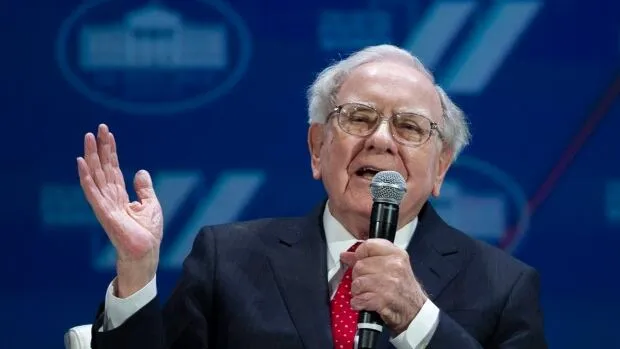Warren Buffet is one of the most successful investors of all time. Born in 1930, he has accumulated $86 billion dollars in his 88 years. The style of investing he mastered is known as "value investing", which involves doing fundamental analysis on a company to determine whether it is undervalued in the marketplace. This methodology is thoroughly burned into Buffet's nervous system, and that is why he will find it difficult or impossible to understand software such as Bitcoin, which is not a company and therefore not amenable to this form of analysis. Cryptocurrency is a new technology that falls outside of old paradigms.

The value of the Bitcoin software, and also of some other cryptocurrencies, is derived from its usefulness in the world. How useful is a technology that can store value in the same way that a bank vault stores value, except that is globally accessible, trans-national, immune from censorship, seizure and control, is orders of magnitude more convenient and fast, and in many ways much more secure? Throughout history, new technology that is more efficient and effective than old ways of doing things always confers great advantages to those who adopt it.
A simple way to value cryptocurrencies is the same way that gold and other stores of value are valued — by how much people are willing to pay for them. They are used in a similar way as precious metals, to store value. Only it does it in a much better way, and can do other things too.
What differentiates Bitcoin? It is a trustless system, which means that you can use it to transact with anyone else in the world without trusting them, or any third parties. You don't need to trust the sender or receiver of money, not the network infrastructure, not the validators of transactions — you independently, without appeal to any third party or trusted authority, verify and validate the integrity of transactions yourself. You do that using applied cryptography and distributed computing technology. These technologies are available to everyone via a peer-to-peer network of trust, trust that is achieved not through faith in authorities or other people who are amenable to corruption, but through faith in mathematics, in the form of cryptography.

The Bitcoin software was not created by any one person or company, and is not controlled or provided by any one person or company. It is open source software, meaning that the code that makes up the software was written by a global community of cryptographers, computer scientists, and hobbyists. It is freely available to anyone to inspect, download, modify, and contribute to. The source code is right here. It runs on thousands, maybe even millions, of computers world-wide that communicate with each other peer-to-peer — it is decentralized, and getting more decentralized as development continues.
Open blockchains like Bitcoin are borderless, transnational, and neutral. Neutral in the sense that it does not serve the goals or agenda of any one person, organization, institute, nation state, or any other entity. Transactions are either valid, or they are invalid, based on the rules of the consensus algorithm built into the distributed network software. It is radically neutral. This is the first time in history that money has been liberated from political power, and it is empowering everyone who chooses to use it over the King's money.
Many people who have mastered the old-world of finance, like Warren Buffet, have little interest in new ways of doing things. The plutocracy has served them well. They will bemoan change. They will resist even taking the time to learn about it, and will say things to disparage any suggestion that things could be different. They may not even be able to conceive that things could be different. In the end, that won't matter — technological progress will continue, and adopters of new technologies will have a big advantage over those who stagnate.
For those who are curious, I leave you with this educational video about the new money, by one of the foremost experts on the subject and all-around excellent human being, Andreas Antonopoulos: